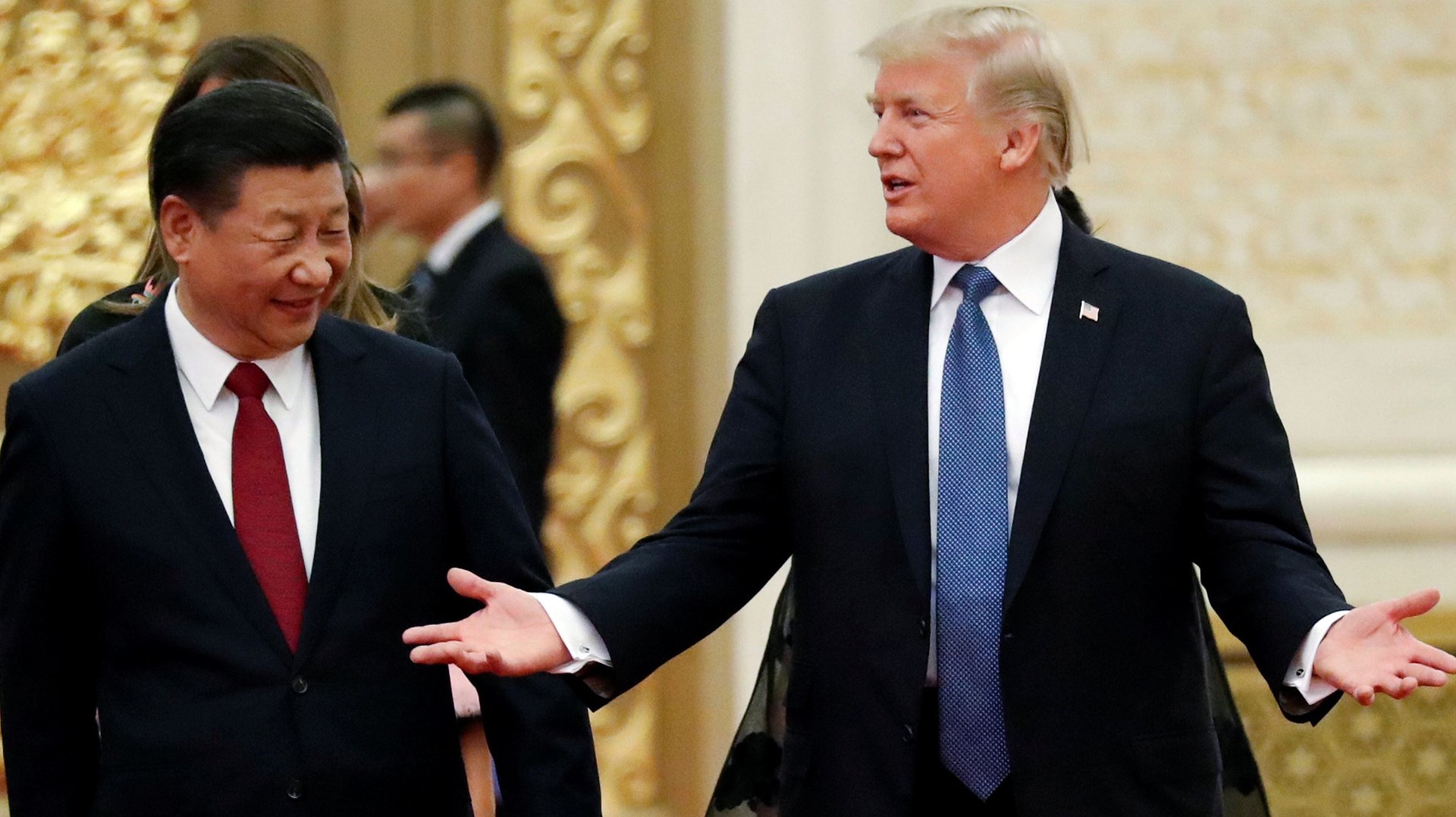Two tyrannical men are about to decide the fate of the global economy over dinner
Donald Trump and Xi Jinping, heads of the world’s two largest economies, are set to meet at in Buenos Aires for a “working dinner” on Saturday night that will have global repercussions.


Donald Trump and Xi Jinping, heads of the world’s two largest economies, are set to meet at in Buenos Aires for a “working dinner” on Saturday night that will have global repercussions.
The US and China’s escalating trade war, which began after Trump put taxes on hundreds of billions of dollars worth of Chinese goods this summer and China responded with tariffs of its own, has been a drag on stock markets and corporate profits. Industries from autos to lobster are feeling a pinch, while companies world-wide are upending their supply chains to avoid the battle. In China, recent economic numbers have missed the mark, and its biggest online retailers have revised earnings expectations downward, suggesting that the trade war is starting to pinch (it’s hard to tease out the effects of the tariffs from China’s own efforts against risky lending and investment).
When a discussion is this important, historically there are weeks of meetings between underlings and deputies, mapping out a concrete strategies and written agreements.
At the heart of the disagreement is how China’s government supports its own industries and companies to a degree that seems unfair to other nations.
“The biggest conundrum to be solved in the trade war is figuring out the proper form of state support for economic activities, since there are legitimate reasons for different approaches,” wrote Yukon Huang, a senior fellow at the Carnegie Endowment and a former World Bank China head, in the South China Morning Post. “This is a complex issue, and no solution can be found at a one-off meeting between heads of state. A rules-based, institutional approach is needed.”
But relations are so strained between the Trump and Xi administrations that there’s been little more than phone calls. There’s no agreed-upon formal agenda, no prepared joint statements, and no plans for a press conference after the two meet.
Instead, the dinner meeting is little more than a personality test between two leaders under increasing pressure from conflicts at home, who have shown a disregard for making decisions by consensus, far preferring to follow their own counsel even if it leaves both sides at a stalemate.
Xi is, of course, quite literally an authoritarian dictator, who has tightened his grip on a country of 1.4 billion people who can never vote him out of power by stifling free speech and religious freedom. Trump runs a divided democracy of 325 million whose rifts he’s stoked with outrageous remarks, visa bans targeting Muslim-majority countries, and by closing the door to refugees. Both leaders have no patience for advisors whom they don’t agree with or whom they think are disloyal, and have moved to shut down sources of information that don’t agree with their point of view.
Trump famously ignores his own intelligence community, state department, and career economists in favor of talking heads on Fox News, and hawkish advisors with little track record of success in China. His former top economic advisor, Gary Cohn, quit when Trump wouldn’t take his advice on tariffs like the ones now souring the relationship with China.
Xi, meanwhile, has consolidated decision-making power within the party since he first became the party’s general secretary, by expanding the use of “leading groups” on a variety of issues, including on the economy and reform, that he personally chairs (he’s been called the “chairman of everything“). He’s also used the party propaganda machine to promote a politics of personality around himself. That has involved trying to reduce the stature of Deng Xiaoping, the father of China’s opening up, and silencing critics, for example by shutting down a liberal think tank that favors economic and political reforms.
In his nearly two years as president, Trump has followed a recognizable pattern when it comes to dealing with foreign leaders he disagrees with, and trade terms he thinks are unfair: he talks tough, then ultimately backtracks and declares victory. He also relentlessly promotes himself and his own negotiating skills.
That pattern repeated this week. In the weeks ahead of Saturday’s dinner, Trump pronounced himself “very prepared” for the talks with Xi whose outcome will affect many other economies. “I’ve been preparing for it all my life,” he said last week, echoing remarks he made ahead of meeting Kim Jong Un in June at a summit that resulted in lots of photo-ops but little clarity over the plan for North Korea’s nuclear weapons. He also doubled down on threats to raise tariffs on $200 billion of China’s goods from 10% to 25%—as well as impose new tariffs on pretty much the remainder of its exports to the US.
Xi will be hoping for some public commitment to at least delay the Jan. 1 increase, while Trump’s wary of making any concessions that risk making him look weak—and also likes to keep people guessing. Hours before arriving in Argentina Thursday night (Nov. 29), he tweeted gleefully about the tariffs.
At this point, an agreement to keep talking, a handshake, followed by a declaration of victory from both sides, is the best the world should expect from this meeting.